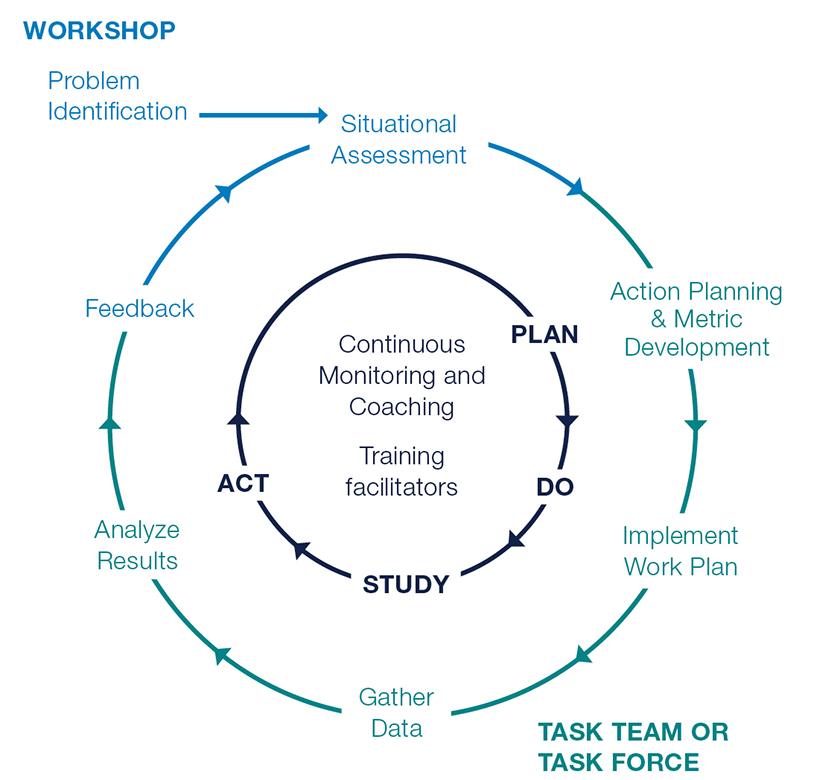Program Management
Focus for improving malaria program performance is often directed towards addressing technical challenges, while operational issues – such as suboptimal coverage of surveillance and vector control, stockouts and shortages, or lack of engagement with the community or private sector – are neglected. However, until adequately addressed, operational challenges can significantly inhibit malaria program effectiveness.
Building strong leadership and management capacity within a malaria program can correct these operational issues. By strengthening communication and coordination, enhancing training, supervision, motivation, and accountability, and engaging the appropriate stakeholders, a malaria program can dramatically improve efficiencies in the delivery of planned services and develop the innovation necessary to overcome unforeseen but inevitable disruptions.
According to the WHO, “Leadership is about creating a vision, communicating this to others, developing strategies, motivating people, and negotiating for resources and other support to achieve their goals. [Managers] make decisions on how best to use staff, budgets, drugs and other resources, and are responsible for making things happen. In the resource constrained and difficult environments of many low – to middle-income countries, a manager must also be a leader to achieve optimum results.”1 Strengthening leadership and program management at the subnational level creates an important bridge between the national, subnational, and community levels. This bridge contributes to achieving outcomes and overall strengthening of a high-quality health system. Community engagement is increasingly becoming a critical part of this work, making programs more sustainable and aligned with the local context while facilitating local ownership.
The MEI developed the Leadership & Engagement for Improved Accountability & Delivery of Services Framework (LEAD) in response to malaria program demand to support NMCPs in approaching problem-solving in a systematic, participatory manner while building capacity for leadership and management at any level and across levels and ensuring sustainability. It also supports malaria programs to improve teamwork and the quality of service delivery, make data-informed decisions to improve operations, and take critical action.
LEAD comprises practical activities that take a bottom-up approach to program planning, ensuring it is an iterative process with buy-in by the key stakeholders who are responsible for the execution and evaluation of malaria plans. Underscoring the role of the manager, The Lancet Commission on malaria states “effective management and implementation of malaria programs are the most important requirements for national and regional elimination and eventual global eradication.”2

- 1 WHO. Operations manual for delivery of HIV prevention, care and treatment at primary health centres in high-prevalence, resource-constrained settings. Edition 1 for field-testing. Geneva: World Health Organization; 2008. https://apps.who.int/iris/handle/10665/44015
- 2 Feachem et al. Malaria eradication within a generation: ambitious, achievable, and necessary. Lancet 2019; 394 (10203): 1056-1112.